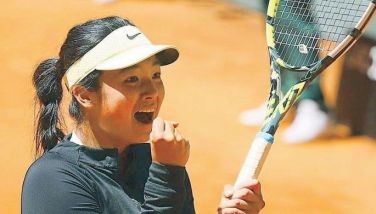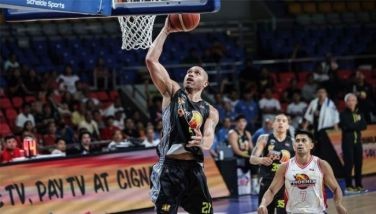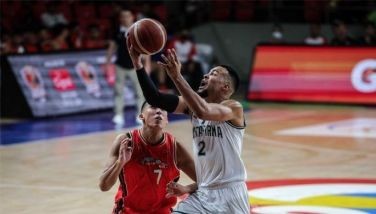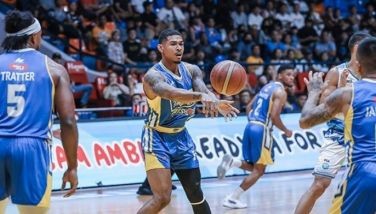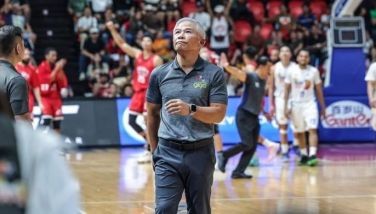Untangling the mess
There is some light at the end of the tunnel for Philippine sports, and it lies in the hands of the local government sports coordinators and officials, and the Department of Education.
At the “National Consultative Meeting on Development Plan for Philippine Sports and Set-Up of Philippine Sports Institute” (someone should come up with an acronym for these events), PSC chair Butch Ramirez revealed to the regional and local sports officials present that they have the power and capacity to make a difference in their communities. Apparently, local governments do have budgets for sports, but many people are unaware of it and the process for instituting sports programs that will outlast the incumbent mayors and governors. This was one of the common sentiments expressed by the delegates, that they did not know how to manifest their plans, and that existing plans often disappear each time new local chief executives come to power.
“We are judged by the medals that we win, not the effort and programs that are in place,” rued educator and former PSC chair Dr. Aparicio Mequi. “We have to support a true grassroots development program and give it time to bear fruit. Medals are not the standard by which we should be measured.”
Mequi also stressed the need to separate public schools from private schools in regional and national sports competitions. Private schools have more resources and are naturally going to dominate competitions. He recalled that as PSC chair, he was able to separate the two, only to be endlessly lobbied by private schools to undo the separation. He said it was unfair and discouraging to the public schools, which are in more need of logistical and technical support.
The PSC is committed to going around the country to consult with and provide technical support to the various LGUs and plant the seeds for community-based sports programs that will be given the time to grow and produce not just national athletes, but healthier citizens. Between now and the end of the year, the PSC is also writing manuals for the Philippine Sports Institute (PSI) to be distributed to local government sports officials and educators nationwide, so that everyone is fully aware of what they can do to improve sports in their locales. The PSI is expected to be launched in January 2017. This will help alleviate one of the problems of provincial athletic training, that teachers who are not qualified to train kids in sports are, by default, forced to perform such an important task.
On Thursday afternoon, the hundreds of delegates who filled up the basketball court at the PhilSports Multi-Purpose Arena (formerly ULTRA) were divided into working groups by geographical location, and given parameters on drafting a report based on their specific experience. Ramirez assured the attendees that the PSC will spread its knowledge and understanding of pertinent laws and rules to everyone concerned, and decentralize its functions as much as possible. Friday, the groups presented their reports to the plenary body. Also in attendance Thursday were Samahang Basketbol ng Pilipinas chair Sen. Sonny Angara, Philippine Olympic Committee president Peping Cojuangco, former PSC chair Popoy Juico, Pagcor vice-president for community relations Arnell Ignacio, Tourism undersecretary Kat de Castro, and House of Representatives chairman of the sports and youth committee Rep. Mikee Romero, his vice-chair Rep. Chiqui Roa-Puno, and Rep. Raul Daza, as well as some national sports association heads.
One of the biggest challenges is a perceived disconnect with the Department of Education, particularly since sports was removed from its functions. Delegates complained that 40 minutes to one hour of PE is grossly inadequate to help in the physical development of the youth, and that they are uncertain how to get help from DepEd with regards physical education matters. In reply, Rep. Romero made an impassioned plea to let the sportsmen in the Lower House know what their specific needs are, some may more effectively legislate to those ends.
Earlier in the week, the PSC also held an intersectional meeting with heads of the various NSAs, in order to work more closely together. The government agency has also put its foot down and instructed the different NSAs to submit all their liquidations and comprehensive programs, or not be given any more funding.
“Some of these NSAs have events, not development programs,” explained Com. Mon Fernandez, who has been shuttling between Cebu and Metromanila as part of his duties on the PSC board. “But the PSC has visitorial and supervisory powers which we have not been exercising. This is government money. There should actually even be a separate representation from the PSC within the NSAs to help resolve internal conflicts.”
Fernandez said the PSC has hired three lawyers specifically to help arbitrate internal conflicts within the NSAs and remove impediments to the implementation of their programs. The retired four-time PBA Most Valuable Player also said that in the past, some NSA heads piled up massive unliquidated funds, then simply formed a new NSA so as not to deal with the messes they created. He insisted that they will still run after those officials.
“It’s the same group, just with a different name,” Fernandez told The STAR. “So we told them that we will still go after them and cut off their funding, or we can give it directly to the athletes.”
Thus far, there seems to be an air of cooperation from the sports stakeholders concerned, who now feel more valued and part of the process of transformation.
- Latest
- Trending













